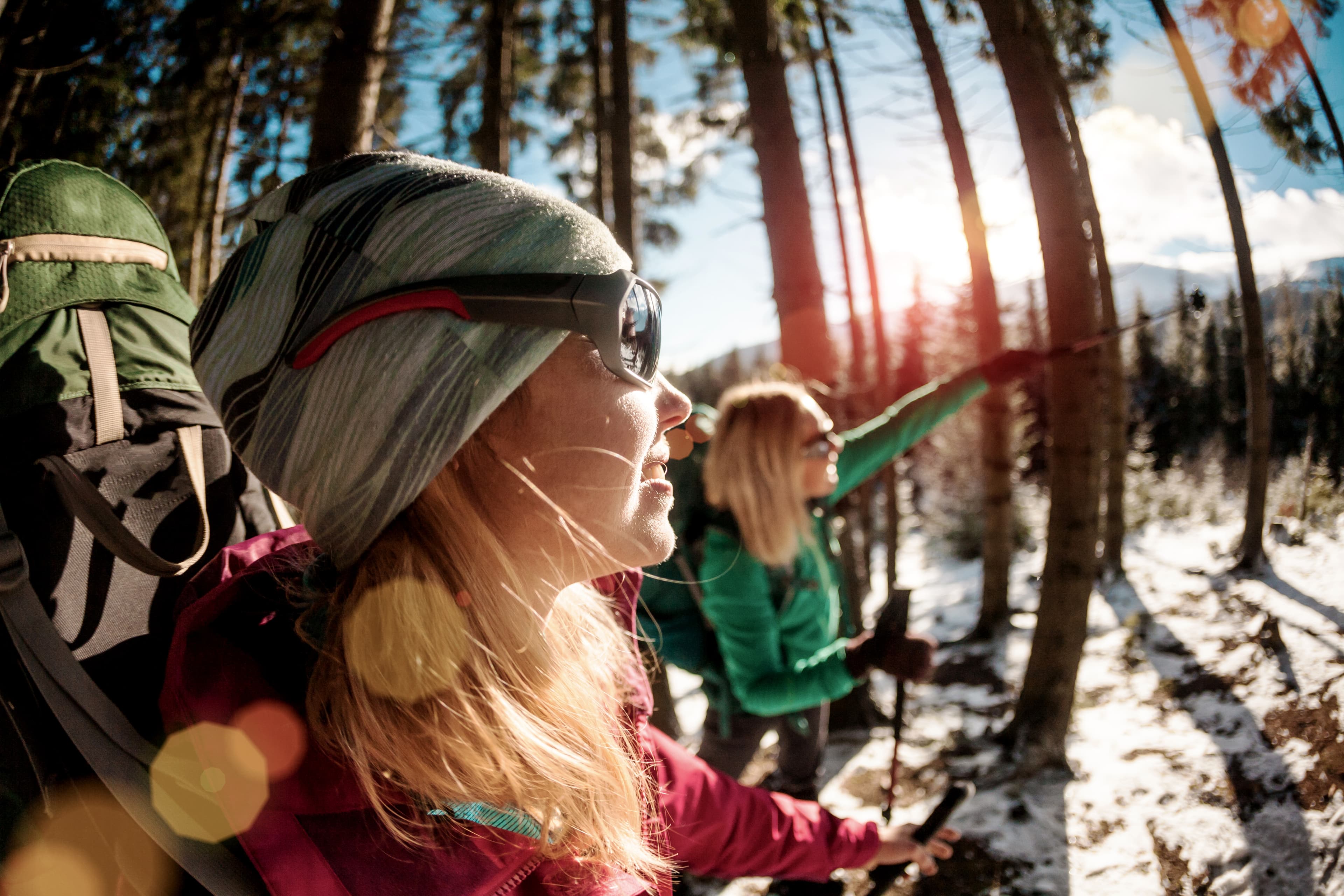
Optimal Eye Protection in the Winter Sun
A delightful winter day and a trip to the snow are calling. Keep in mind that the UV radiation is very high due to the reflection of the sun in the snow. Especially in winter, it is advisable to wear a good pair of sunglasses.
The best choice is a model that also closes well on the sides and provides optimal UV protection all around the eyes. Also, make sure that the glasses have sufficient ventilation to prevent fogging, which can be very annoying and potentially dangerous.
The tint of the sunglasses lenses ranges from light to orange, which improves contrast in overcast weather, to extra dark for maximum glare protection. There are also lenses that adapt to light available. Try out the different lenses at a specialized store and seek advice. Then decide which lens is most suitable for you. It's also important to try out the glasses frame, as even sunglasses can cause uncomfortable pressure points.
Specialized sunglasses for sun and sports can be prescription-corrected, providing not only optimal UV protection but also clear vision. Venturing onto the slopes without prescription glasses or contact lenses poses a high risk. Speed, changing light conditions between sunny bright slopes and shady areas require good vision and fast reactions. Ski helmets with visors protect both contact lens wearers and glasses wearers. However, this protection is missing on the sunny terrace in the mountain restaurant. With a well-fitting corrected sunglasses, sun protection is guaranteed everywhere, both when skiing and in other winter sports activities where a helmet is not worn. A well-fitting fashionable sunglasses serves well in sports and après-ski, is fun, and is a worthwhile investment for many years.
Tip:
Clean the sunglasses after each use before putting them back in the case. Residues from sunscreen and sweat on the glasses can damage the glasses over time.